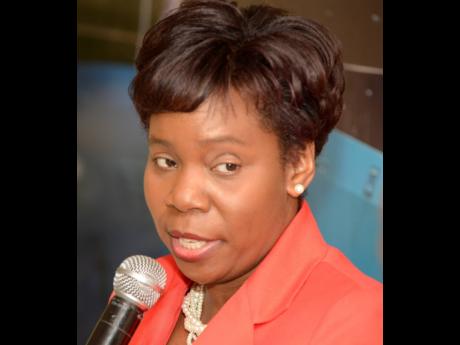JPS to introduce cheaper ‘time of use’ rates for EV charging
Electricity distributor Jamaica Public Service Company, JPS, says it has enough power to charge the estimated 50,000 electric vehicles that is projected to be in use in Jamaica by 2030, but can only do so effectively if EV owners confine the...
Electricity distributor Jamaica Public Service Company, JPS, says it has enough power to charge the estimated 50,000 electric vehicles that is projected to be in use in Jamaica by 2030, but can only do so effectively if EV owners confine the charging of their vehicles to off-peak hours.
A study commissioned by JPS last year indicates that some 90 per cent of EV owners will opt to charge their vehicle at home and will be inclined to do so during the peak hours of 6 p.m. to 10 p.m. as a matter of convenience.
But the light and power company hopes to start shaping charging behaviour, early in the game, towards practices that will allay pressure on the national electricity grid, and has received approval from the Office of Utilities Regulation for the implementation of special electricity rates that will incentivise EV owners to charge their vehicles within specific time slots, that is, the off-peak hours of 10 p.m. to 6 a.m. on weekdays and 6 a.m. to 6 p.m. on weekends.
The so-called ‘time of use’ rates will apply to individuals and commercial customers.
Peak-hour EV charge rates will be set at $51 per kilowatt hour, while off-peak rates will be split into two categories: partial peak hours – which runs from 6 a.m. to 6 p.m. weekdays and 6 p.m. to 10 p.m. on weekends – will be charged at $44.38 per kWh; and off-peak charging for residential customers will be billed at $35.84 per kWh.
The estimated charging time for vehicles on the grid is six to eight hours.
“We are going to introduce a concept called ‘managed charging’ versus ‘unmanaged charging’. This is about our behaviour in charging and how it can impact our capacity requirements for generation,” said JPS Business Development Director Dionne Nugent during an online forum hosted by Mona School of Business and Management on Wednesday.
“At about 30,000 EV cars, we see that with unmanaged charging – and by that I mean everybody charging at the same time – you are looking potentially at about 153 megawatts. If you have managed charging, where you are using technology, safe grid approaches and tariffs to ensure that everybody is not charging at the same time, we can reduce that to 46 megawatts,” Nugent said.
She added that in the off-peak period, consumers will benefit from available reserve capacity in excess of 50 per cent in some cases.
Currently, Jamaica has a total installed capacity of 1,030MW, of which 872.5MW is owned by JPS. The power utility also buys power from independent energy companies under contract.
At peak, capacity usage on the grid is around 666.7MW and that is expected to climb to 798MW by 2030.
“Based on our existing capacity, managed charging with the addition of, say, 46 megawatts, is something that can easily fit within our tolerance level, based on our integrated planned projections of growth each year – which is about 10 to 12 megawatts,” said Nugent.
“What that means is that JPS would not have to be looking at any significant generation capacity additions to support EV,” she said.
Market forces, including technology and consumer demand and climate change policy around carbon emission-reduction targets, have been driving forces for EV evolution globally.
In Jamaica, the switch to EV is still in its infancy with barriers to overcome. As the country’s sole electricity provider, JPS itself has been at the forefront of the creation of an EV charging market, even as questions are already being asked as to whether its exclusive licence over electricity distribution could serve to hobble the EV market, and whether a ‘carve out’ for providers of EV charging networks should be considered.
The power company has initiated a three-year project through the JPS Foundation with the Inter-American Development Bank’s innovation unit, the IDB Lab, on an EV public charging infrastructure nationwide. The power utility is in the process of deploying 10 stations in partnership with service stations.
Another company, InterEnergy Group Limited, is investing $150 million through local subsidiary Evergo Jamaica in the roll-out of 60 electric vehicle charging stations nationally by year-end. Evergo is a sister company to Jamaica Energy Partners, which is one of the independent power providers contracted to sell electricity to JPS.
Since JPS has a monopoly on power distribution, Evergo has said it will buy electricity from JPS at regular rates to power vehicles at its charging stations.

